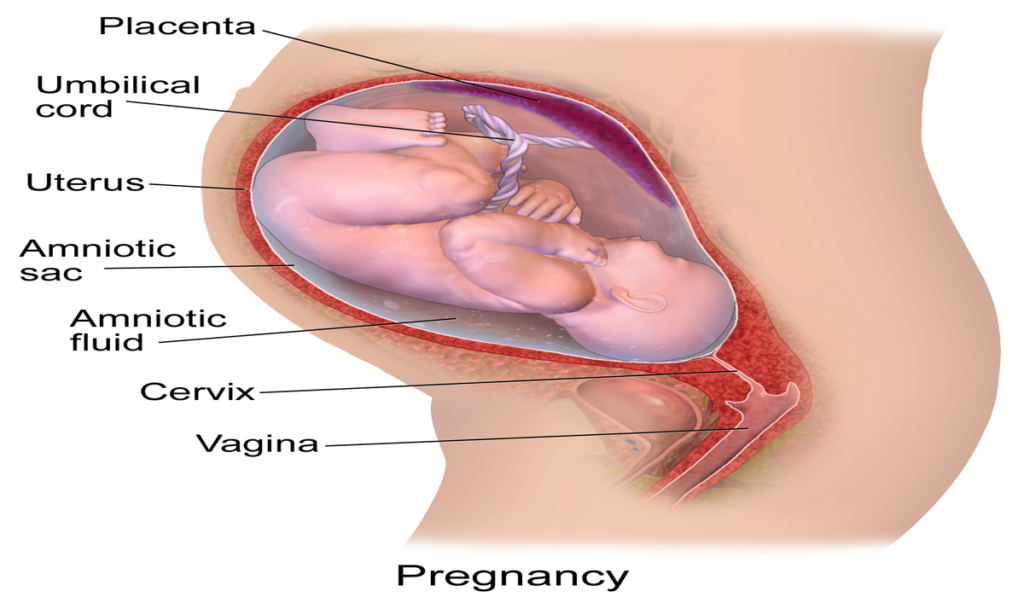
The 08 month of pregnancy is a very exciting time for many pregnant women. This period initiates the final trimester, during which anticipation builds and the arrival of the baby seems ever closer.
Table of Contents
Understanding the changes in your body during this period helps you feel prepared and confident toward child delivery. In this article, we will discuss what happens during the eighth month of pregnancy: typical symptoms, development of the baby, and some advice on how to cope with this important period.
Overview 8 Months Pregnancy
How Many Weeks is 8 Months Pregnancy?
One of the most frequently asked questions by expecting mothers is: “How many months pregnant is 8 weeks?” Approximately two months.
Being 8 weeks pregnant is how many months? Eight weeks of pregnancy are about two months. Although it is agreed that pregnancy is usually measured in weeks as it is more accurate, still most people want to express their pregnancy in months for better understanding.
However, when you’re eight months pregnant, you are approximately between 32 to 35 weeks pregnant. This is an important differentiation to make because pregnancies are very often referred to in terms of weeks and not months, due to the more accurate way in which the baby’s growth can be monitored week after week.
Understanding the Trimester Breakdown:
First Trimester: 1 to 13 weeks
Second Trimester: 14 to 27 weeks
Third Trimester: 28 to 40 weeks
Well into the third trimester, you are already in the eighth month and will see your due date in just a few weeks.
Baby’s Development in the Eighth Month

At this period, your baby is quickly gaining all the attributes required to survive outside the womb. The following is what happens during the eighth month:
Weight and Size
During the eighth month, a baby weighs about 4 to 6 pounds, measuring approximately 16 to 19 inches in length. Weight is rapidly gained by the baby at this point, with body fat added which is important for the regulation of temperature after birth.
Brain Growth
Within these few weeks, the growth of the baby’s brain is very rapid. The development of the brain further goes on for processing information more efficiently and to support the senses and coordinate the movement of the body.
Development of the Lungs
The surfactant lining of the lungs is manufactured. It keeps open the air sacs of the lungs and allows for breathing after birth. Although it is still incomplete, most eight-month-old babies can breathe well on their own with very little medical intervention.
Positioning
Most babies assume a head-down “flexed” position in readiness for birth. This is the ideal position and avoids many complications in childbirth.
8 Months Pregnant Symptoms
These are some of the symptoms that can appear during the eighth month of pregnancy. Some of them could get worse as the due date approaches. Here are a few common complaints one may encounter:

1-Increased Braxton Hicks Contractions
These are sometimes called “practice contractions.” They can become more frequent and/or strong during the eighth month. Braxton Hicks contractions are most often irregular and less painful than true labor contractions but can be uncomfortable.
2-Shortness of Breath
As the uterus expands, this can push on your diaphragm and make it uncomfortable or a bit more difficult to take deep breaths. This is a very common symptom and usually goes away once the baby has dropped down into the pelvis.
3-Back Pain and Pelvic Pressure
That growing baby in your tummy may apply some pressure on your back and pelvis, which, in turn, may bring about back pains, pelvic discomfort, and at times, even sciatica, characterized by sharp pain radiating down to the legs.
4-Swelling (Edema)
Increased fluid retention and changes in circulation may cause many women to swell in their feet, ankles, and hands. Elevate your feet and stay hydrated to curb this symptom.

5-Frequent Urination
As the baby grows and drops down into the pelvis, it presses on the bladder and can cause more frequent urination.
6-Fatigue
The body works hard for the growing baby and preparing the muscles for labor, hence feeling tired. One should rest and take breaks to nap when needed.
7-Sleep Disturbances
This stage is rather challenging as far as finding a comfortable sleeping position is concerned. Many at this stage cannot sleep due to the discomfort experienced, frequent urination, or sometimes anxiety about the birth.
8-Leaking Colostrum
Some will notice a yellowish fluid leaking from their breasts. This is colostrum, the first milk the baby will have after birth, containing lots of antibodies and nutrients.
Managing Symptoms and Maintaining Health
Stay Active
Light exercises like walking, prenatal yoga, or swimming can help reduce backaches, improve blood circulation, and make a pregnant woman feel good in general. You are advised to contact your healthcare provider before starting any exercise yoga etc.
Eat Healthy
You’ll unquestionably need to make any doubt you get sufficient nutrient-dense nourishments like protein, solid fats, natural products, vegetables, and entirety grains that bolster your well-being and the well-being of your child Great sustenance underpins the baby’s development well and the body plans for pregnancy and childbirth.
Hydrate
Rest and fluid intake will minimize swelling and decrease the risks of developing UTIs, which are common in pregnancy.
Posture
As the belly starts to enlarge, good posture is a sure way of evading backache. Try standing up straight, use a chair with good lumbar support, and avoid heavy lifting.
Rest and Relax
Listen to your body and make sure you rest as much as it tells you. Prop your feet up to reduce swelling and sleep on as many pillows as it takes to get comfortable.
Prepare for Labor
Childbirth classes will help in understanding labor and delivery. These classes will help in soothing the anxiety and making one more prepared for the big day. Discuss your birth plan with your doctor and familiarise yourself with the signs of labor.
Emotional Changes in the Eighth Month
This is the most crucial time, and almost everybody becomes emotional when the arrival of the baby is near. You may be feeling excited, anxious, and impatient all at once. Here are some tips on how to handle your emotions:
Connect with Your Partner

Share with your partner how you’re feeling; this will help strengthen your relationship and assure you that both of you will be ready when your baby finally arrives.
Reach Out for Support
Talk to friends and family or other pregnant women. Join a prenatal support group if this will comfort and make you feel at ease to talk without feeling that you’re all alone.
Practice Relaxation Techniques
Such activities as deep breathing, meditation, and prenatal yoga can help in trying to keep you calm and reduce anxiety.
Know Your Stuff
Knowledge is power. Learn about childbirth and newborn care, but you don’t have to read all the books. Stick to reliable sources and discuss your concerns with your practitioner.
When to Call Your Doctor

Although most symptoms during the eighth month of pregnancy are normal, it is always good to understand when to call your doctor. You will need to get in touch with your healthcare provider without any delay in case you experience any of the following:
1-Severe abdominal pain or cramping
2-Heavy bleeding or fluid leakage
3-Decreased baby movement
4-Persistent severe headache, vision changes, or sudden swelling
5-Signs of preterm labor: regular contractions, pelvic pressure
Conclusion
The eighth month is one of great change and anticipation in pregnancy. A better understanding of what to expect during this time, and how to manage common symptoms, may ease this part of pregnancy.
Keep in mind that every pregnancy is different, and it is always best to follow your intuition and the whispers of your body by reaching out to your healthcare provider if you have any concerns. You are just about at the finish line, and you’ll soon be holding that little one in your arms.
Disclaimer
In this article, information related to a particular topic has been collected from various sources, the purpose of which is only to increase the knowledge of the readers and it does not confirm the existence of any disease and its treatment. Health Alpha does not take any responsibility for any such information.
Views: 0














Pingback: Digestive System-5 uregent work of it.Did you know it?